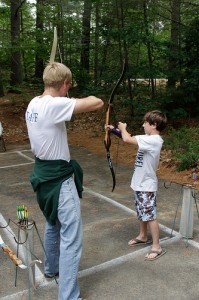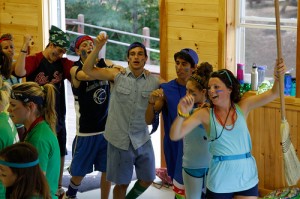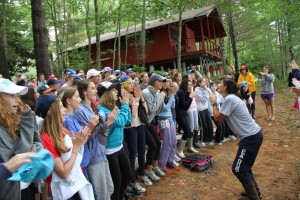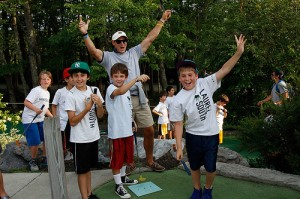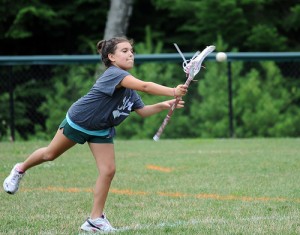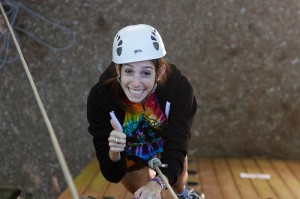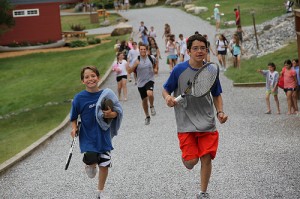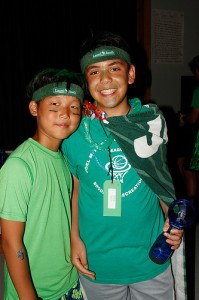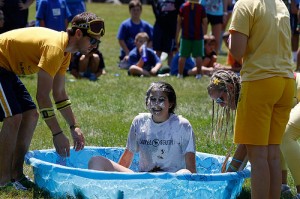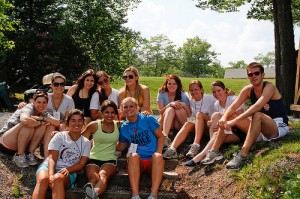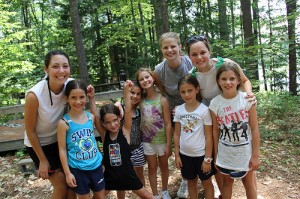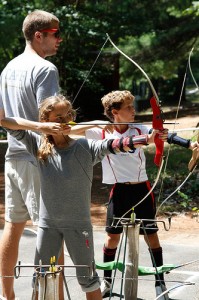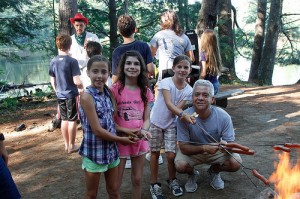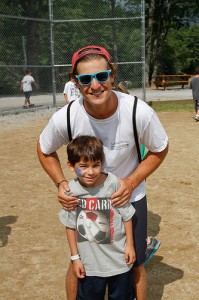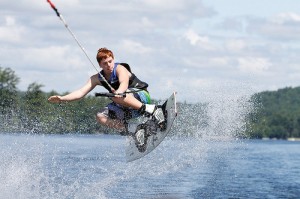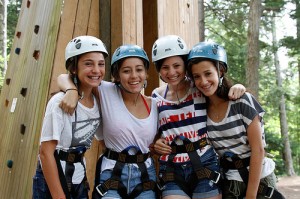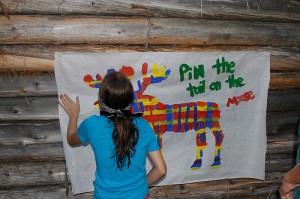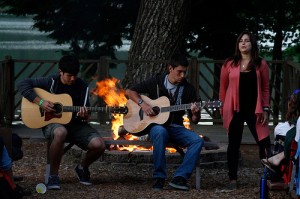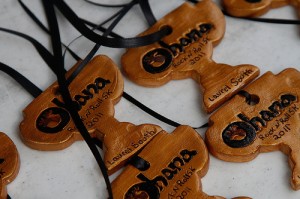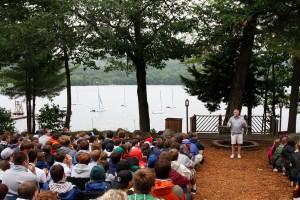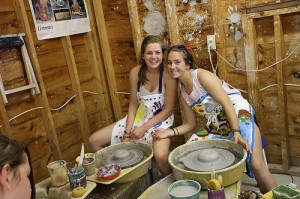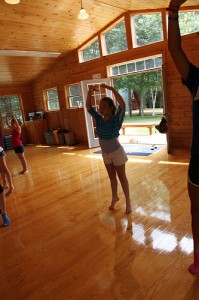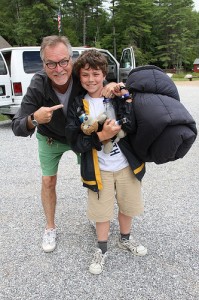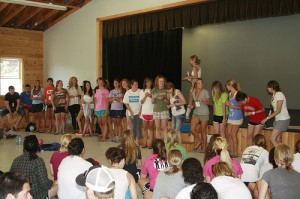 According to the American Camp Association (ACA), nearly 1.2 million people take on the adventure of working at camp each summer. They come from all over the world and all walks of life. Some of them are former campers while others have never experienced summer camp at all. Their educations are as diverse as their backgrounds and many of them choose summer camp over a traditional internship because of the unique, well-rounded work experience it provides. Whether the winter weather already has you thinking about what you’ll be doing this summer or you’re just browsing summer employment opportunities, it’s worth asking yourself, “Am I one in a million?” :
According to the American Camp Association (ACA), nearly 1.2 million people take on the adventure of working at camp each summer. They come from all over the world and all walks of life. Some of them are former campers while others have never experienced summer camp at all. Their educations are as diverse as their backgrounds and many of them choose summer camp over a traditional internship because of the unique, well-rounded work experience it provides. Whether the winter weather already has you thinking about what you’ll be doing this summer or you’re just browsing summer employment opportunities, it’s worth asking yourself, “Am I one in a million?” :
- Summer camp staff come from all over the world. Increasingly, as summer camps recognize their unique position to promote a global community in a fun, relaxed environment, they are recruiting staff from near and far. The ACA reports that within the last decade “there has been an increase in the use of international staff to expose campers to different cultures.” If you live outside of the U.S. and you’ve been wanting to travel to the USA, summer camp is a great way to earn some cash while getting to intimately experience life here. If you’re an American and a trip abroad just isn’t quite in the budget, you need go no further than a residential summer camp to make new friends from all over the world—and pad your bank account while doing it!
- If you think that being a former camper is a pre-requisite to being a great camp counselor, think again. Many camp
 staff members who return to camp year after year never even set foot on a summer camp campus prior to working at one. Like many of their colleagues, that one step was all it took. They were won over and continue to return each season.
staff members who return to camp year after year never even set foot on a summer camp campus prior to working at one. Like many of their colleagues, that one step was all it took. They were won over and continue to return each season.
- Summer camp employment isn’t just for education majors and coaches. Increasingly, those with majors in the social sciences, sciences, math, engineering, and even medicine and nursing are finding a summer home at camp as an alternative to the traditional internship. Summer camp provides many unique experiences that one can gain nowhere else, such as a 24/7 commitment and the opportunity to simultaneously work with children and adults in a close-knit family type community. Summer camp also develops a diverse range of core skills valued by employers today. As a camp staff member, one must make split second decisions, be an efficient negotiator, use creativity to sell ideas and concepts, resolve conflict, solve problems, be an effective leader, know how to prioritize, be extremely flexible, accept change, and be awesome when it comes to multi-tasking. If it sounds like a big order, it is. But almost all who take on the challenge report that it’s also one of the most fun and rewarding experiences upon which they’ve ever embarked.
- If you are an education major or a coach, have you thought of summer camp as an opportunity to build experience working with children ages 7-15? Working at summer camp develops many of the same skills that are often used in the classroom or on the field. Many educational institutions view summer camp experience as some of the most valuable on a potential educator’s resume.
 How many traditional internships pay you AND provide you with room and board? In addition to a stipend for the summer, almost all residential summer camp positions offer room and board as part of their employment packages. What this means to you is that, potentially, everything you earn throughout the summer goes straight into your pocket…or your bank account, as the case may be. Even if you allow yourself a bit to splurge on sightseeing around the local area (many of America’s finest summer camps are located in some of the most beautiful parts of the country), it’s still possible to take home a substantial amount of cash at the end of the summer. This is particularly appealing when one considers how much rent and food can add up to over a summer.
How many traditional internships pay you AND provide you with room and board? In addition to a stipend for the summer, almost all residential summer camp positions offer room and board as part of their employment packages. What this means to you is that, potentially, everything you earn throughout the summer goes straight into your pocket…or your bank account, as the case may be. Even if you allow yourself a bit to splurge on sightseeing around the local area (many of America’s finest summer camps are located in some of the most beautiful parts of the country), it’s still possible to take home a substantial amount of cash at the end of the summer. This is particularly appealing when one considers how much rent and food can add up to over a summer.
If you’re looking for the summer job to beat all summer jobs, summer camp may definitely be your cup of tea. At summer 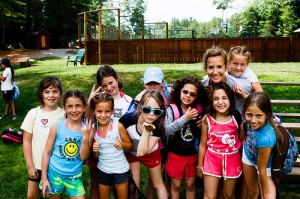 camp, everyday will be a new adventure that takes you both indoors and out from sunrise to sunset. There are no cubicles, no computers (aside from computers available for staff to use on their free time), and no time clocks. And…there are beautiful surroundings, a camp full of campers who depend on you, a slew of challenges you never knew you’d face (and enjoy), and a circle of lifetime friends waiting to meet you. If you’re one in a million, what are you waiting for? If you are a college or university student, check your college’s upcoming career fair lineups. Many summer camps travel to universities to recruit this time of year. It may be possible to meet the first member of your future camp family in person. If your college days are behind you or there are no summer camps scheduled to visit your university, you can apply directly through Camp Laurel South’s web page.
camp, everyday will be a new adventure that takes you both indoors and out from sunrise to sunset. There are no cubicles, no computers (aside from computers available for staff to use on their free time), and no time clocks. And…there are beautiful surroundings, a camp full of campers who depend on you, a slew of challenges you never knew you’d face (and enjoy), and a circle of lifetime friends waiting to meet you. If you’re one in a million, what are you waiting for? If you are a college or university student, check your college’s upcoming career fair lineups. Many summer camps travel to universities to recruit this time of year. It may be possible to meet the first member of your future camp family in person. If your college days are behind you or there are no summer camps scheduled to visit your university, you can apply directly through Camp Laurel South’s web page.


